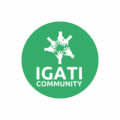
1. Introduction
The Igati Agribiz Cluster Model is an innovative agricultural framework designed by Igati Creative and Innovators to drive socioeconomic reforms in Meru County. The model aims to enhance agricultural productivity, promote innovation, and improve value addition by organizing smallholder farmers into specialized clusters at the sub-location level. By fostering collaboration, resource sharing, and economies of scale, the initiative seeks to transform subsistence farming into a commercially viable enterprise, ensuring sustainable livelihoods for farmers and strengthening food security. The Igati Agribiz Cluster Model serves as the backbone of our agricultural projects in Meru County, specifically tailor-made to address the county’s unique agricultural landscape and challenges.
2. Problem Statement
Smallholder farmers in Meru County face numerous challenges, including limited access to quality inputs, fragmented production, low bargaining power, inadequate technical expertise, and underdeveloped value chains. The lack of coordination among farmers leads to inefficiencies, post-harvest losses, and difficulties in accessing markets. The Igati Agribiz Cluster Model addresses these issues by promoting collective action, enhancing productivity, and fostering innovation in agricultural practices.
3. Objectives
- To establish and promote agricultural innovation clusters at the sub-location level.
- To improve productivity by encouraging specialization within agricultural clusters.
- To enhance value addition through consistent and reliable raw material supply.
- To facilitate access to affordable farm inputs and professional services.
- To improve smallholder farmers’ efficiency through cooperative efforts and innovation.
- To strengthen market linkages and increase farmers’ income through collective marketing.
4. Implementation Strategy
The model follows a structured approach that includes:
4.1 Cluster Formation:
- Each sub-location will focus on one specific agricultural cluster, such as dairy farming, beekeeping, poultry, sunflower farming, or horticulture.
- Farmers within a sub-location will join the designated cluster based on their interest and expertise.
4.2 Capacity Building and Training:
- Technical training sessions on modern farming techniques, value addition, and agribusiness management.
- Collaboration with agricultural extension officers, research institutions, and development agencies to enhance knowledge transfer.
4.3 Resource Sharing and Input Accessibility:
- Bulk procurement of farm inputs such as seeds, fertilizers, and animal feeds to lower costs through economies of scale.
- Establishment of shared processing units for post-harvest handling and value addition.
- Provision of affordable mechanization and extension services to improve productivity.
4.4 Value Addition and Market Access:
- Processing and packaging of agricultural produce to enhance market competitiveness.
- Strengthening market linkages through cooperative marketing and direct sales to buyers.
- Branding and promotion of cluster products under the Igati Community Brands to ensure visibility and customer trust.
4.5 Innovation and Technology Adoption:
- Introduction of smart farming technologies such as precision agriculture, irrigation systems, and climate-smart farming techniques.
- Encouraging farmers to adopt digital platforms for market access, information sharing, and cooperative management.
5. Expected Benefits
- Higher Productivity: Specialization and training lead to increased yields and better-quality produce.
- Enhanced Value Addition: Clusters ensure a steady supply of raw materials for processing and manufacturing.
- Economies of Scale: Farmers benefit from bulk purchasing, reducing costs on inputs and services.
- Affordable Professional Services: Extension services and technical support become more accessible within clusters.
- Improved Efficiency: Farmers collaborate to optimize production and reduce operational costs.
- Market Competitiveness: Collective marketing and branding enhance profitability for smallholder farmers.
6. Stakeholders and Partnerships
- Smallholder Farmers: The primary beneficiaries, actively participating in cluster activities.
- Government Agencies: Providing policy support, extension services, and financial assistance.
- NGOs and Development Partners: Offering capacity-building programs, funding, and technical expertise.
- Private Sector and Financial Institutions: Supporting agribusiness financing, market linkages, and supply chain management.
- Academic and Research Institutions: Contributing innovative solutions, research, and extension services.
7. Sustainability and Scalability The Igati Agribiz Cluster Model is designed to be self-sustaining through:
- Revenue generation from value-added products and cooperative marketing.
- Reintegration of profits into input supply, training programs, and infrastructure development.
- Expansion to neighboring counties to scale up agricultural innovation and economic empowerment.
Conclusion
The Igati Agribiz Cluster Models represent a comprehensive and innovative approach to rural development in Meru County. By focusing on value addition, market access, and sustainable practices, this initiative seeks to transform the socio-economic landscape of the region, providing a blueprint for similar efforts in other agricultural communities.
